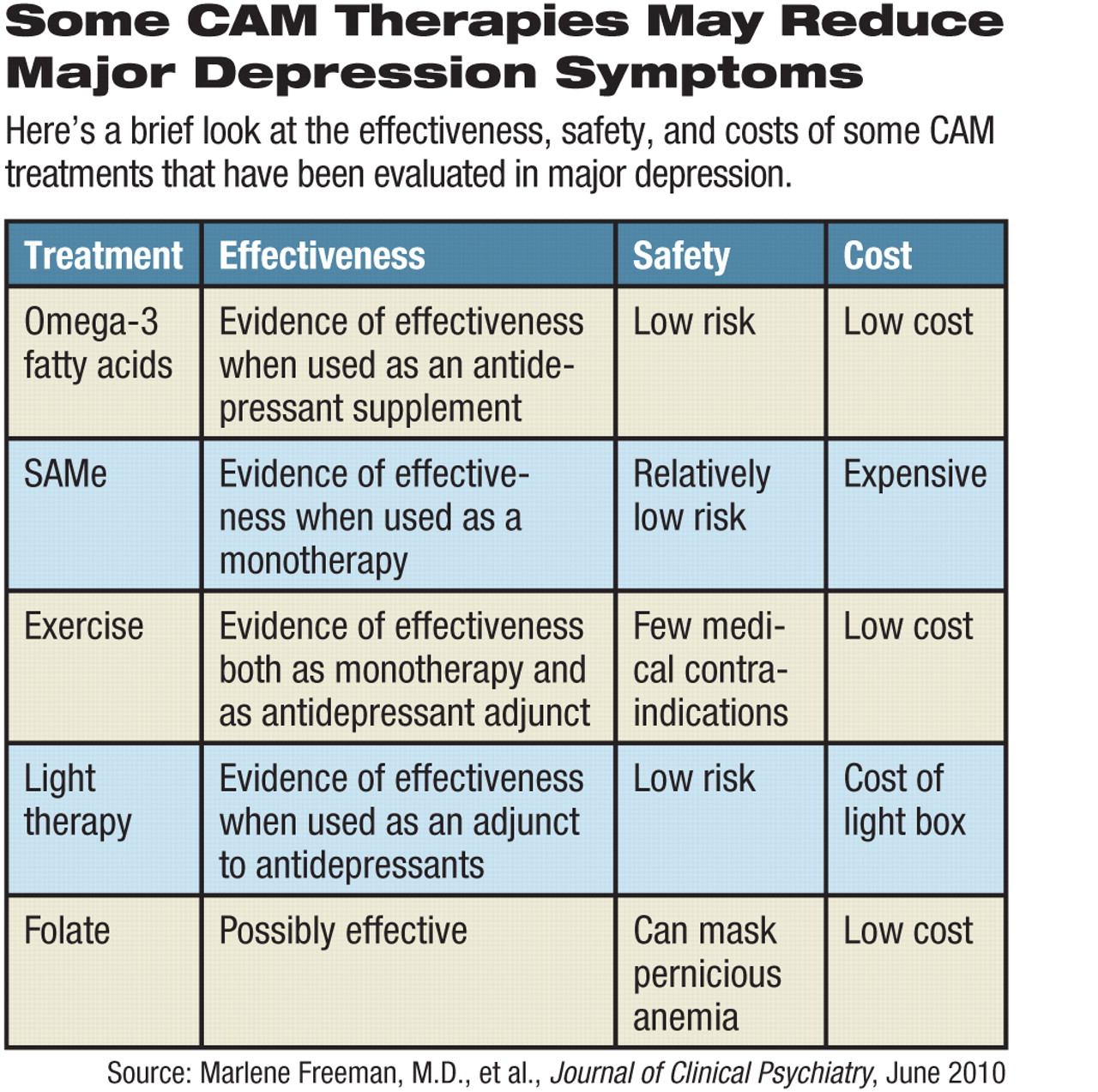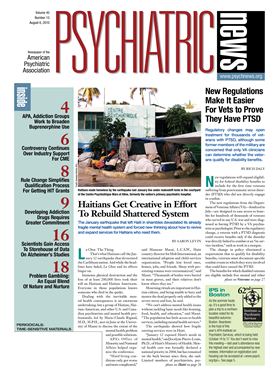Are any complementary or alternative medicine (CAM) treatments effective against major depressive disorder?
Perhaps a few of them, APA's Task Force on Complementary and Alternative Medicine reported in the June Journal of Clinical Psychiatry.
Yet it is impossible at this point to say whether any one of the treatments is more effective than another for this indication, Marlene Freeman, M.D., a Harvard Medical School psychiatrist and head of the task force, told Psychiatric News. The reason, she explained, is that “it is extremely difficult to compare the evidence from one CAM treatment to that for another, as study designs and number of studies have varied.”
The following is a brief look at the findings of the task force:
•.
Several trials have shown that the omega-3 fatty acids are beneficial when used as an antidepressant supplement. However, there are limited and conflicting results regarding their use as a monotherapy for major depression, and doses are not indicated.
•.
Several trials have suggested that parenteral or oral preparations of S-adenosyl-L-methionine (SAMe)—the major donor of methyl groups in human metabolism—are as effective as antidepressants in treating major depression.
•.
Exercise has been studied both as monotherapy and as an antidepressant adjunct. Trial results have generally been positive in both men and women across a wide age range and irrespective of setting or mode. Furthermore, patients who continued to exercise following study participation had a lower risk of relapse over several months to years.
In one study, for example, the efficacy of exercise as a monotherapy for mild to moderate major depressive disorder was tested in men and women aged 20 to 45. Some subjects exercised from 180 to 210 minutes a week, others 80 minutes a week, and still others served as controls. After 12 weeks, the high-exercise group showed a 47 percent reduction in symptoms, while the low-exercise and control groups showed a 30 percent reduction in symptoms. The differences were statistically significant.
•.
Although there is strong evidence that light therapy can counter seasonal depression, the efficacy of light therapy as a treatment for major depression is less well established. Also, it looks as if light therapy might be more effective against major depression if it is combined with an antidepressant than if used alone.
In one randomized, controlled trial, for instance, 102 subjects were treated with the SSRI sertraline (50 mg/d). Subjects also received randomized augmentation treatment with 30 minutes of either bright morning (10,000 lux) or dim red (50 lux) light for five weeks. All clinician and self-report measures significantly favored active light augmentation.
•.
Regarding St. John's wort, trials suggest that it is more effective for mild to moderate depression than for the severe form of the illness.
•.
Studies have failed to demonstrate the efficacy of acupuncture compared with a control condition for the treatment of major depression.
•.
And as for folate, its efficacy as a monotherapy for major depressive disorder has yet to be adequately tested. A few trials have found folate to be efficacious and well tolerated, although the best dose and form of folate remain unclear.
The task force also examined the side effects and costs of these therapies. It found, for example, that the omega-3 fatty acids have a low risk of side effects and are inexpensive, that SAMe has a relatively low risk of side effects and is expensive, and that St. John's wort carries a risk of interactions with drugs such as antiretrovirals, immunosuppressants, antineoplastic agents, anti-coagulants, and oral contraceptives.
“The sheer scope of CAM use in the U.S. is fascinating and somewhat daunting,” Freeman said. “Over 40 percent of adults use at least one CAM treatment annually, demonstrating how accessible and attractive these treatments are to our patients. However, we found that very few CAM treatments [for major depression] have received rigorous study. Our task force hopes that our report will serve as a foundation for future research in this area.... Any treatment for a serious psychiatric disorder, whether considered CAM or conventional, needs to be rigorously studied for effectiveness and safety.”
The task force's review was funded by APA.

